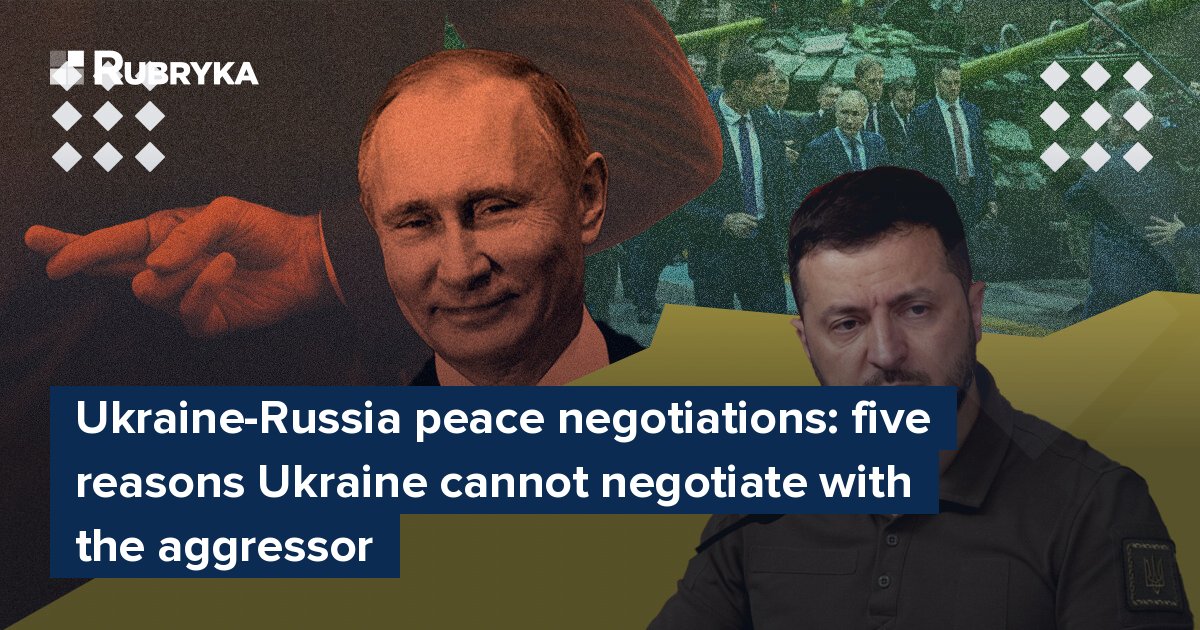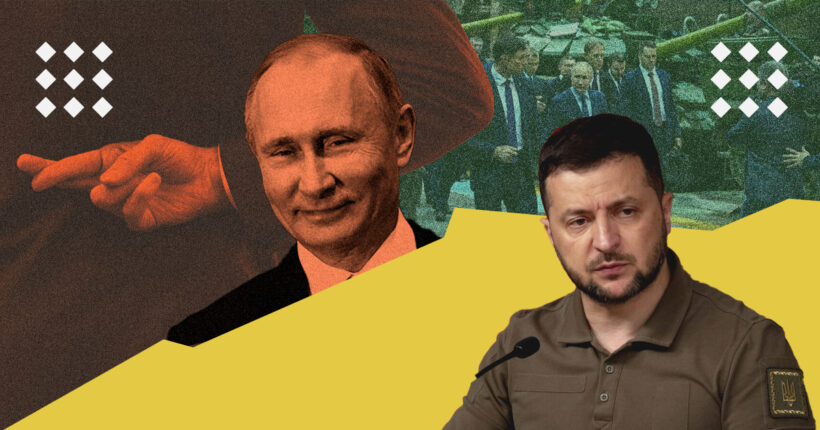
1. Russia doesn't want peace negotiations
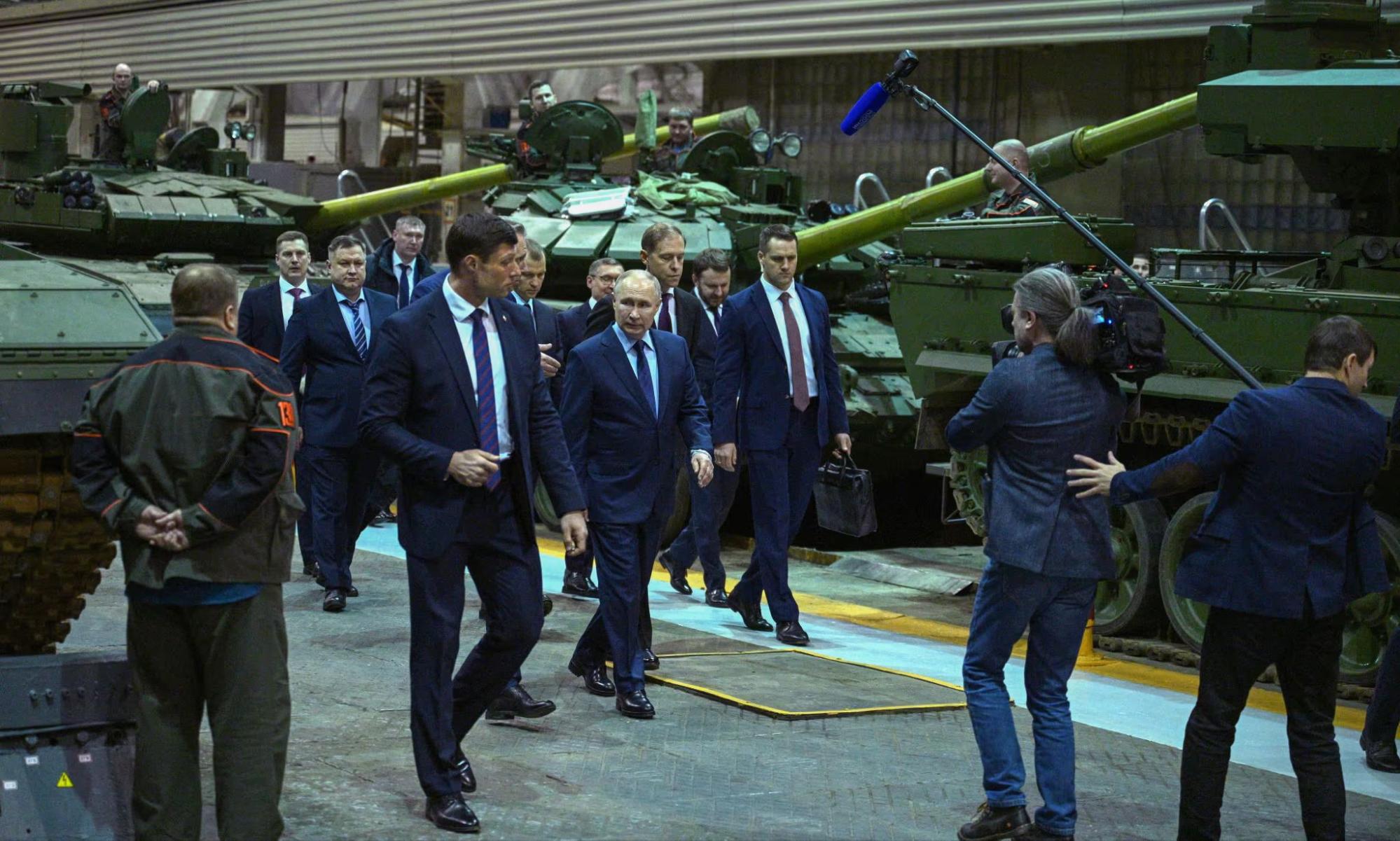
Russian President Vladimir Putin, on a visit to Uralvagonzavod, the country's largest tank producer, in Nizhny Tagil, on February 15, 2024. Photo: Ramil Sitdikov/Sputnik/Kremlin pool/EPA
In December 2023, a group of The New York Times journalists published an article, "Putin Quietly Signals He Is Open to a Cease-Fire in Ukraine," claiming the Russian president is ready for talks and "far short of his ambitions to dominate Ukraine." Every time Russia starts talking about allegedly wanting Ukraine-Russia peace negotiations, it shows the contrary with its actions. After the NYT story was published, Ukraine was massively attacked almost every day leading up to 2024 and after. Those attacks included the deadly Russian strikes on December 29, which killed 30 civilians in Kyiv and seven in Zaporizhzhia.
Any "hints" or "signals" that Russia is open to negotiations mislead the Western world about the aggressor's real intentions. They are meant to divide Ukraine's supporters and prevent new aid packages from coming to the invaded country. Russia claims that Ukraine "doesn't want peace" when Ukrainians are the ones most interested in achieving it. The proof is President Volodymyr Zelensky's 10-point peace formula, which calls for, among other things, the complete withdrawal of Russian forces from Ukraine and a ceasefire.
While Ukrainians are looking for solutions, like the peace formula, and fighting on the battlefield to end the invasion, Putin is openly preparing Russia for the war of attrition, putting his country's economy on war rails and investing in the development and production of new deadly weapons. According to the Russian government's announcement in September 2023, about $112 billion will be allocated to "national defense." Bloomberg News reported, citing Russia's draft budget plans, that defense spending, tripling since 2021, would be at 6% of the country's GDP. "Secret expenditure on classified or unspecified items is forecast to nearly double as the Kremlin continues to try to avoid scrutiny of the war's impact," experts said.
2. Russia always lies
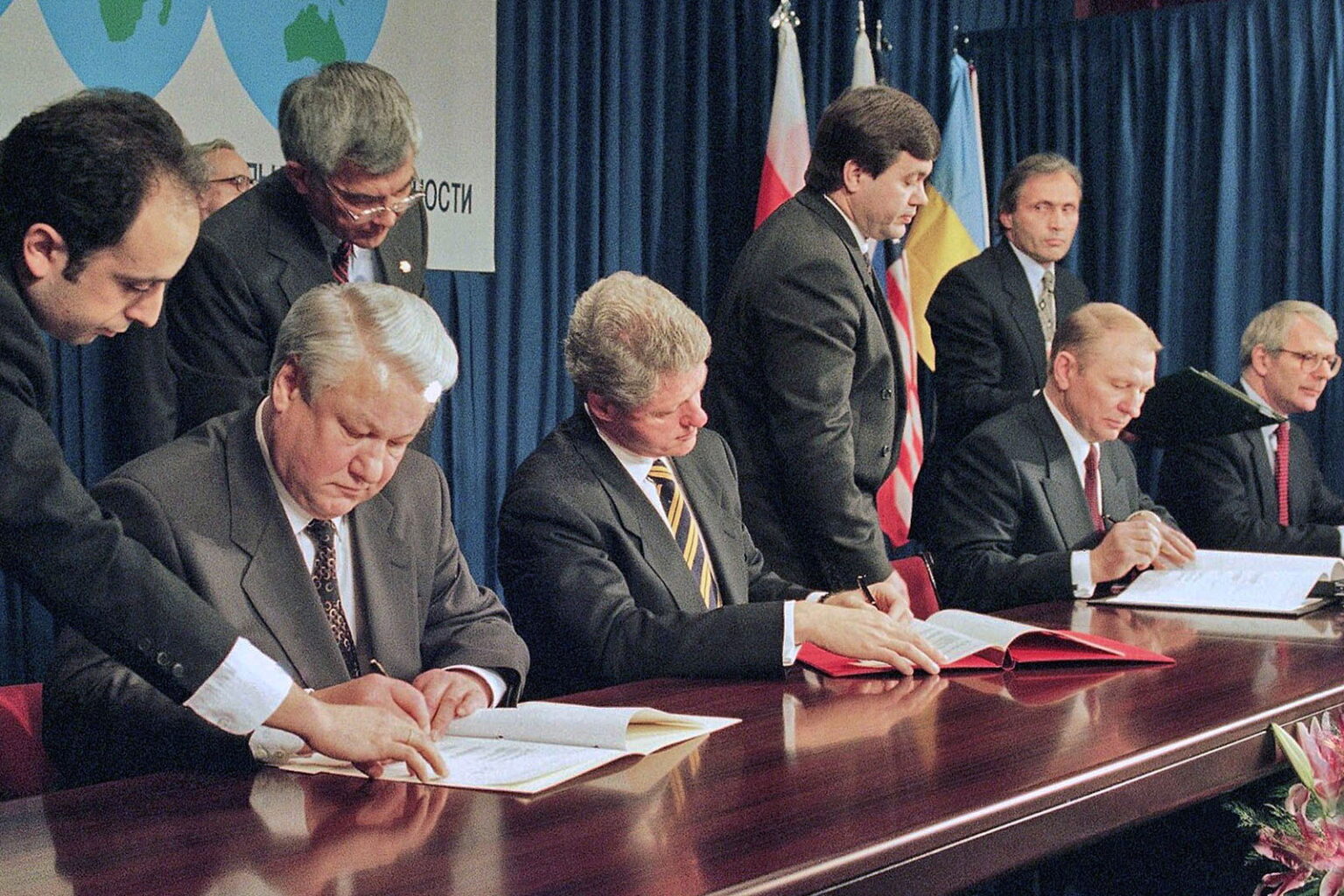
Leaders of Russia, the US, Ukraine, and the UK signed the Budapest Memorandum, which was supposed to guarantee Ukraine's security after it gave up its nuclear weapons in 1994. Photo: Marcy Nighswander (AP)
"Powerful lessons from Ukraine's own past, as well as its neighbors' history and present, have taught Ukrainians that Moscow can't be trusted," says Andreas Umland, an analyst at the Stockholm Center for Eastern European Studies. He is right: Ukrainians don't believe a word Russians say. The Kremlin showed it cannot negotiate and keep its word in good faith. In a viral tweet, Ukrainian Foreign Minister Dmytro Kuleba, as a person who manages by facts, skillfully broke down all the instances in which Russia violated negotiated agreements.
The minister started by citing the Budapest Memorandum of 1994, in which Ukraine gave up its nukes for security guarantees. Then, Russia agreed to "respect independence, sovereignty, and the existing borders of Ukraine." In 2014, Russia breached the agreement by invading Crimea. When "green men" or Russian soldiers without insignia entered the peninsula, Putin first lied that his country wasn't involved but then admitted he gave the order.
Kuleba also mentioned the Minsk Agreement of 2014 and 2015 after Russia occupied Ukraine's eastern region of Donbas. Putin then agreed to a ceasefire, which Russia violated on multiple occasions, and later launched the full-scale war against Ukraine on February 24, 2022. This example demonstrates that freezing the conflict does not mean achieving peace. As Russia used the Minsk ceasefire to prepare for the large-scale invasion, it will do so again.
The Ukrainian FM listed Russia's violations of treaties, not only with Ukraine but also with other countries, like Georgia and Moldova, whose territories are also occupied by Russia as of 2024. "I am only focused on deals made with Russia to address specific issues and conflicts. I am not mentioning almost 400 international treaties that Russia has breached since 2014," Minister Kuleba said. "Putin is a habitual liar who promised international leaders that he would not attack Ukraine days before his invasion in February 2022."
3. On Ukraine's terms, not on Russia's
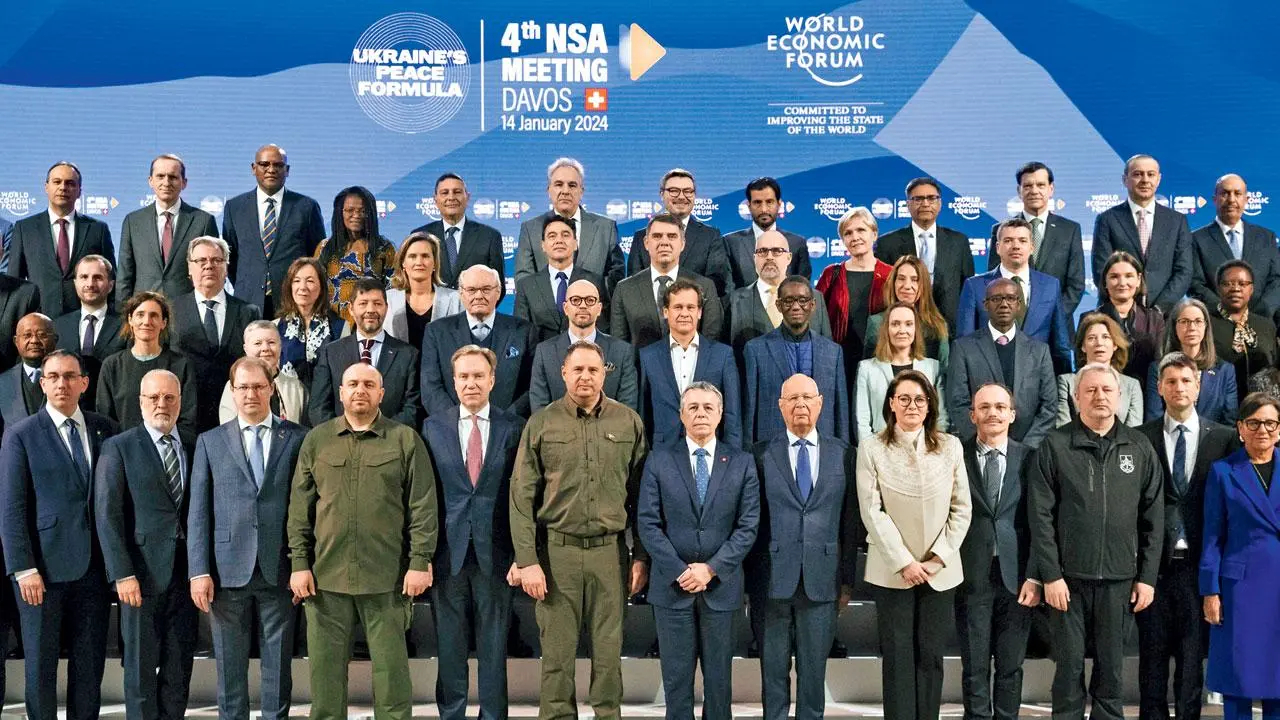
83 officials participated in the meeting at the World Economic Forum in Davos, Switzerland, to review and discuss the Ukraine Peace Formula. Photo: Pic/AP
In August 2022, former Russian president and current vice chief of Russia's security council, Dmitry Medvedev, gave an interview to the French TV channel LCI. He said Russia was open to negotiations with Ukraine and that only an agreement "that guarantees Russia's security" could stop the war. Using frequent propaganda messaging that Russia's (not Ukraine's) security was "under threat," Medvedev tried to portray Russia as a victim when, in reality, his country invaded its neighbor and violated international law.
Each time Russia says it's "open" for talks, what it means is that Ukraine needs to agree with all the extreme demands the aggressor has. President Zelensky then commented on Medvedev's interview and said, "In [Russia's] understanding, negotiations are an ultimatum in which [Ukraine] must recognize that Donbas and Crimea are Russian territories… It's just an alligator with an insatiable hunger for everything foreign. No matter how you talk to them today, they will still come after another of our territories in six months."
As Switzerland prepares for the Ukraine peace summit in June 2024, Russian officials start mentioning "the openness to talks," recalling the 2022 proposals (demands) they made during Ukraine-Russia peace negotiations at the beginning of the full-scale war. Then, Ukraine wasn't sure about its success on the battlefield and Western support, so it agreed to send its delegation to Brest, Belarus, which hosted the talks. Kremlin spokesperson Dmitry Peskov recently stated, recalling those draft proposals, that they could serve as the foundation for new negotiations, reflecting "new realities," likely meaning the current state of the front line.
Those 2022 proposals were ultimatums, where the militarily advantageous country with nuclear weapons, Russia, demanded its smaller neighbor, Ukraine, to give up aspirations to join NATO, which could protect it from further invasions, reduce its army to a minimum, making it more vulnerable, and leave Crimea and other occupied territories and millions of Ukrainians under Russia's control.
Since 2022, Russia's intentions haven't changed. In a recent comment to Bloomberg, Kremlin spokesperson Dmitry Peskov said, "Russia was, is and will continue to be open for negotiations on Ukraine" to achieve its "goals" (read: Ukraine's capitulation). He continued, "We are determined to reach our goals. And would prefer to complete it by diplomatic means. If not, the military operation will continue until we reach our goals." Ukraine cannot let Russia slide and help it destroy the Ukrainian independence, which the country has been fighting for centuries. It cannot accept a scenario where Russia achieves its "goals," and Ukraine is "neutered," invaded again in the future, or doesn't exist anymore.
4. Russia must be brought to justice
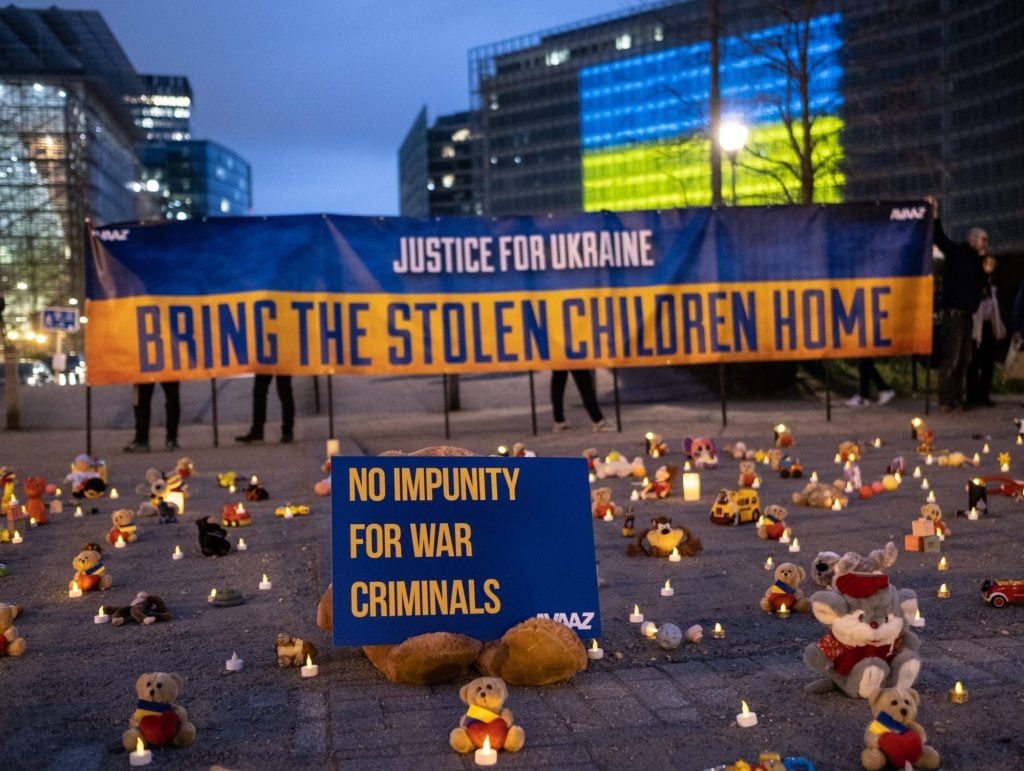
On February 24, 2023, activists lit candles beside teddy bears in Brussels, Belgium, to raise awareness of Russia's abductions of Ukrainian children. Photo: Hans Lucas
Kyiv-born politician Golda Meir once said, "You cannot negotiate peace with someone who has come to kill you." This is what Russia came to Ukraine to do and has been doing since 2014, when it started its war against Ukraine, occupying Crimea and part of the eastern Donbas region. The aggressor state has publicly called for the genocide of Ukrainians and pushed the rhetoric that the Ukrainian nation "doesn't exist" and that Ukraine is a "made-up" country to justify the invasion. Its attempts to clear its blame with the use of propaganda messaging don't erase the fact it violated international law and committed war crimes Europe had not seen since World War II.
In 1945, when the Nazi regime collapsed, Germany was brought to justice for its crimes against humanity. The country took responsibility and started changing its people and paying reparations to the neighbors devastated by the world war. Since that time, the global community has built a world order where borders and the rule of law are respected.
In the last two decades, Russia has shown no respect for the international law it must abide by, violated numerous conventions, and committed war crimes. Why should Ukraine and the world be ready to forgive and forget? With its "2022 peace proposals," Russia keeps recalling, the country demands from Ukraine and the world to turn a blind eye to all the crimes it committed, borders it violated, territories occupied, and lives it took.
On the contrary to Russia, Ukraine wants the rule of law upheld. According to President Zelensky's peace formula, Russia must withdraw its troops, and Ukrainian internationally recognized borders need to be restored. Russia also needs to be held accountable for its atrocities and pay reparations for all the damage Ukraine suffered. Letting Russia get away with murder means changing the world order as we know it, putting other countries in danger of aggressive invasions.
5. It's not about territories, but Ukrainians under Russian occupation
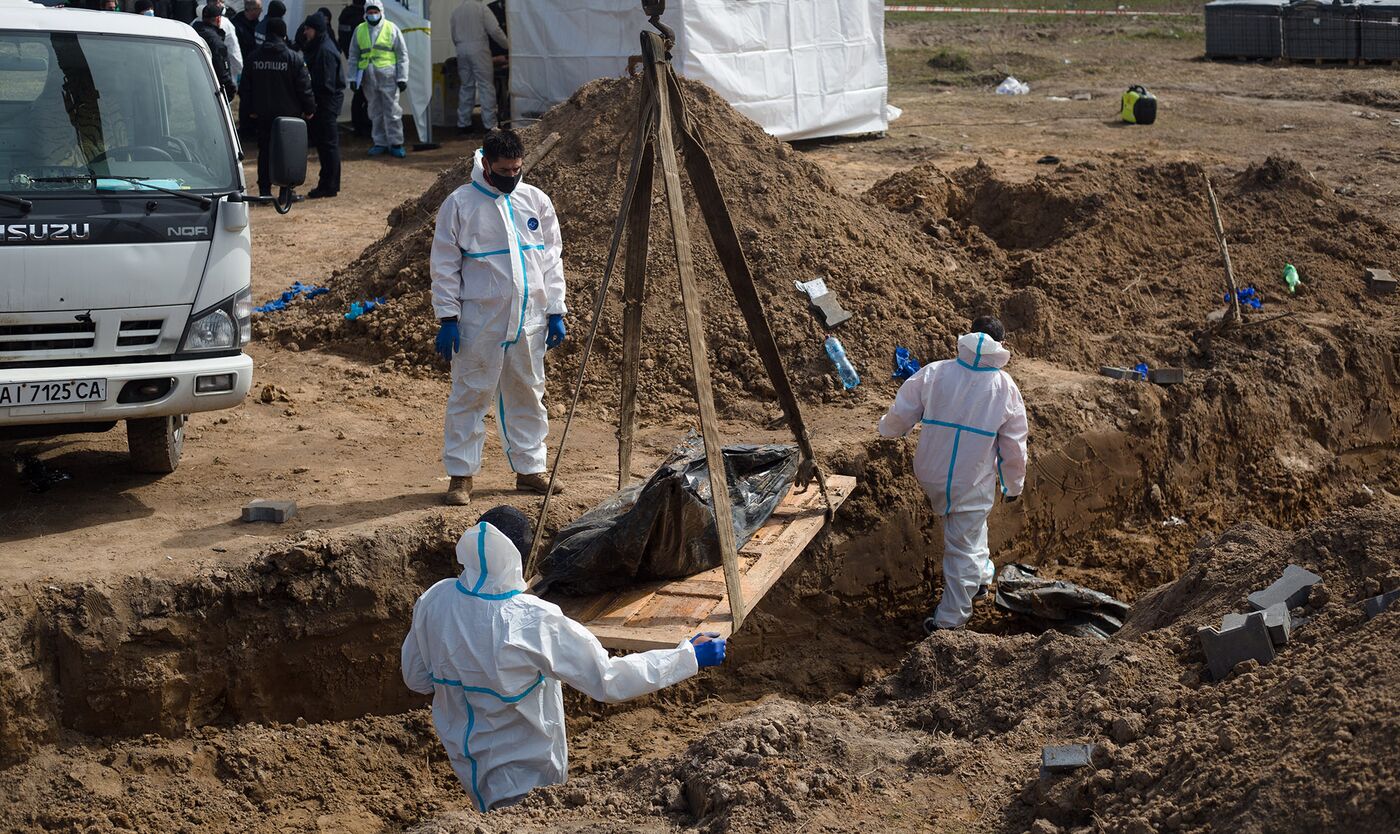
Forensic workers exhumed a mass grave in Bucha, Ukraine, on April 14, 2022. Photo: Anastasia Vlasova/Getty Images
After the Bucha massacre and other Russian atrocities in liberated Ukrainian towns came to the international light, the world community saw what the Russian occupation really meant. Torture and point-blank executions of civilians, abductions of Ukrainian children, networks of torture chambers, rape, and mass graves are some of the war crimes Russian forces committed in the occupied Ukrainian territories. Reported by reputable global media outlets and confirmed by independent human rights investigations and UN commissions, these Russian crimes continue in the Ukrainian towns in the still-occupied Kherson, Zaporizhzhia, Donetsk, Luhansk, and Crimea regions.
Ukrainians from de-occupied territories have also reported to human rights non-profits and law enforcement that Russian forces and the Russia-appointed "authorities" prosecute anyone with pro-Ukraine views, conduct searches in their homes, abduct activists, volunteers, public officials, and journalists. From the beginning of the full-scale war, the ZMINA human rights organization recorded at least 562 cases of abduction of civilians by Russian forces and their proxies in the occupied regions. People also report that occupation administrations have tried to force Ukrainians who stayed to obtain Russian passports, destroyed Ukrainian books, imposed Russian fascist ideology on children in schools, and more.
While Russia tries to insist that people in the occupied territories "want" the aggressor there, referring to the results of sham referendums, the actions of the Ukrainian resistance speak for themselves. When Russia started its war in 2022, the protests against Russia swept across the occupied cities, like Kherson, Melitopol, Enerhodar, and more. Partisan groups, notably in the Kherson and Zaporizhzhia regions, have been working against the Russian occupation since the start of the invasion, gathering intelligence for the Ukrainian armed forces, organizing sabotage missions at the Russian military bases, and assassinating collaborators and Russian soldiers. The Yellow Ribbon movement has resisted with its informational campaigns, showing the occupied territories are and always will be Ukraine.
Ukrainians under Russian occupation today are waiting for the return of Ukraine t to their cities. After the liberation of many towns, including Kherson, when locals met the Ukrainian soldiers with flowers, hugs, food, and joyful chants, and knowing what crimes Russians commit, the Ukrainian government, armed forces, and civilians cannot and will not accept the Russian occupation. They will not leave millions of people behind to experience the killing, oppression, and many other crimes of the "Russian world."
Newsletter
Digest of the most interesting news: just about the main thing




